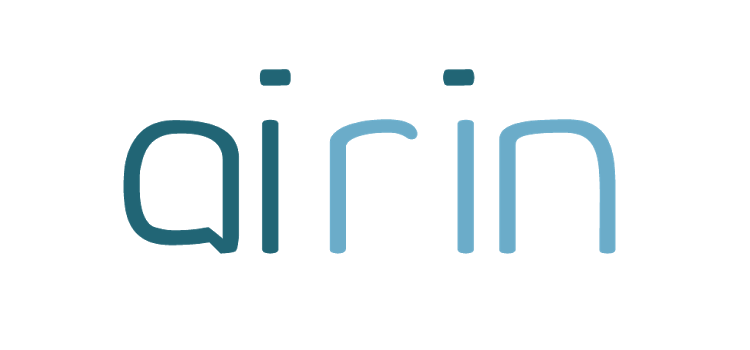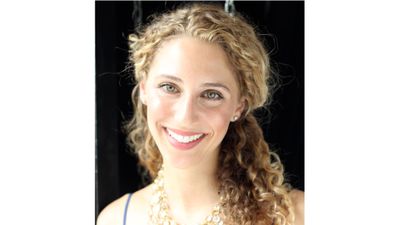“Airin accelerates enterprise technology adoption by predicting which technology solutions are best for which organizations at just the right time.”
There are those of us who identify problems and think “someone else is going to solve this.” Then there are those of us who identify problems and think “I have to solve this.” Linda Klug is one of the latter.
Klug started her career by joining the Red Cross and providing disaster relief. “It was just overwhelming — the feeling that I belonged there,” Klug says. She explains that it was immediately obvious that she had found her calling. But it was perhaps less obvious that it was the first of many callings.
Klug went on to work for FEMA and the UN, assisting with relief for 55 catastrophic disasters. She spent time working in shelters that housed people displaced by disasters, and remembers one day commenting to her supervisor that it felt like disasters only happen to the poor. Her supervisor responded that actually disasters happen to everyone, but some people can afford to pay for a hotel room and bill their insurance later. Klug then realized that strong economics lead to independence.
Meanwhile, the world was changing dramatically, and as a resident of the Bay Area, Klug was on the forefront of the technological explosion of the 90s. Using her education in applied economics and the economics of disasters, she shifted from providing relief from physical disasters to providing relief for and preventing technological disasters in corporations, thereby ensuring companies strong economics and the independence she now understood to be so essential.
Klug spent 22 years helping companies build their resilience. She built practices out of Comdisco (now SunGard) and Veritas (Symantec) where she led the Global IT Disaster Recovery and Storage practices, filed three patents for enterprise technology, and consulted on EMC’s managed availability services. While at EMC, she found that a common lament among her colleagues was their inability to help the midrange market. So, because it was a problem that needed solving, Klug started Axiom Recovery.
The Axiom team, established in 2009 and based in Park City, built a repeatable methodology to develop disaster recovery and business continuity programs for midsize through emerging enterprise businesses. Axiom clients include United Airlines, University of Utah Healthcare, and OfficeMax among many others. Axiom has by all accounts been a success and if Klug were a lazier person she would enjoy that success and coast for the rest of her career. But Klug is not a lazy person. She’s — say it with me now — a problem solver. “I can’t help it,” Klug says. For certain people, we can’t choose to do the work or not. It’s overwhelming.”
The latest problem she’s decided to take on is one she discovered while trying to solve problems for her Axiom clients. Deep, I know. Disaster recovery requires collaboration with a number of subject matter experts and that collaboration tends to take a while. So one day, when Klug was discussing AI machine learning with a colleague by the water cooler I assume, she wondered if AI could speed up collaboration and better predict technological solutions for her clients. “It’s hard to have certain ideas unless you have context,” Klug explains, adding that she didn’t even know the collaboration speed problem existed until she realized there was a solution. “This is one of those things I have to do,” she says.
Klug discussed the the possibility of building on the AI platform with her colleagues and became increasingly excited about the idea. She spoke with sixteen sales executives, all of whom said they had never heard of anything like her plan before, and thought it would be great. So Klug began working on Airin, her SEVENTH startup, out of Pando Labs in Park City last September.
Airin is enterprise SaaS that will predict which technology solutions are best for which CIO customers at what time. Airin analyzes an enterprise’s current technology investments, business initiatives, and technology strategies and then uses predictive analytics to architect compatible technology solutions. It is being built on an Artificial Intelligence Machine Learning platform, which means it can learn faster and process complexity beyond what a networked group of subject matter experts can achieve through the current process of learning and collaboration with trusted advisors. “Airin is going to surprise us,” Klug says. “It will make solution suggestions that normally would take many months and even years for a collaborating group of subject area experts to architect. Airin is enterprise technology exploration with predictability. It will accelerate enterprise technology adoption.”
Klug knows the idea isn’t an easy concept to grasp. “Because what we’re building on is emerging technology, the thing that’s most exciting about what we’re doing is also the most challenging,” she says. Luckily, her specialty is explaining technical ideas to business (nontechnical) people, which will serve her well when she starts raising funds in January. Her long list of trusted advisors won’t hurt either. The names on that list include Anne Vincenti, Director of Product Management at VERITAS, Karen Keating, sales executive at InsideSales.com, Julie Simmons, CIO of Contravent, formerly CIO of MarketStar, Al Nevarez, Data Scientist at LinkedIn, Carine Clark, CEO of MaritzCX, Gunther Branham, Adjunct Faculty at Northwestern University and University of Utah and Park City Angel, William Benz, formerly the CFO of Energy Solutions, also a Park City Angel, and Jess Griffiths, Partner at Godbey & Griffiths, and a Park City Angel. “These [advisors] are people who all have prestigious jobs,” Klug says. “We love it. We fix problems. We have to fix things.”
Klug hopes to raise the necessary funds to create a minimum viable product. “Our goal is to speed up adoption in innovation,” Klug says. “Airin accelerates enterprise technology adoption by predicting which technology solutions are best for which organizations at just the right time.”
After Airin becomes a huge success, Klug will probably go on to cure cancer or get every nation to sign a peace treaty or something. But the next project isn’t on her mind right now. She’s focused on Airin, and Airin only. “I don’t do this for the sake of starting a business. I do it for the sake of getting it done,” she says. “It takes a lot of hard work, but in that hard work is a lot of joy.”








